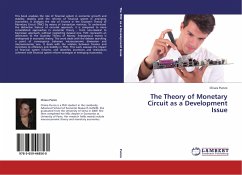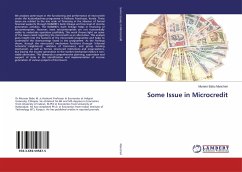
The Theory of Monetary Circuit as a Development Issue
Versandkostenfrei!
Versandfertig in 6-10 Tagen
36,99 €
inkl. MwSt.

PAYBACK Punkte
18 °P sammeln!
This book analyzes the role of financial system in economic growth and stability, dealing with the reforms of financial system in emerging economies. It analyzes the role of finance in the Graziani's Theory of Monetary Circuit (TMC) by means of transaction matrices. To understand the distinctive feature of circuitist approach, it is compared to more consolidated approaches in economic theory - from neo-classical to Keynesian approach, without neglecting classical one. TMC represents an alternative to the Quantity Theory of Money. Endogenous money is widespread in economic theory. This work dea...
This book analyzes the role of financial system in economic growth and stability, dealing with the reforms of financial system in emerging economies. It analyzes the role of finance in the Graziani's Theory of Monetary Circuit (TMC) by means of transaction matrices. To understand the distinctive feature of circuitist approach, it is compared to more consolidated approaches in economic theory - from neo-classical to Keynesian approach, without neglecting classical one. TMC represents an alternative to the Quantity Theory of Money. Endogenous money is widespread in economic theory. This work deals with the debate searching a point of convergence between microeconomic dimension and macroeconomic one. It deals with the relation between finance and incentives to efficiency and stability in TMC. This work assesses the impact of financial system reforms, and identifies incentives and institutions coherent with financial system reform strategies in emerging economies.












